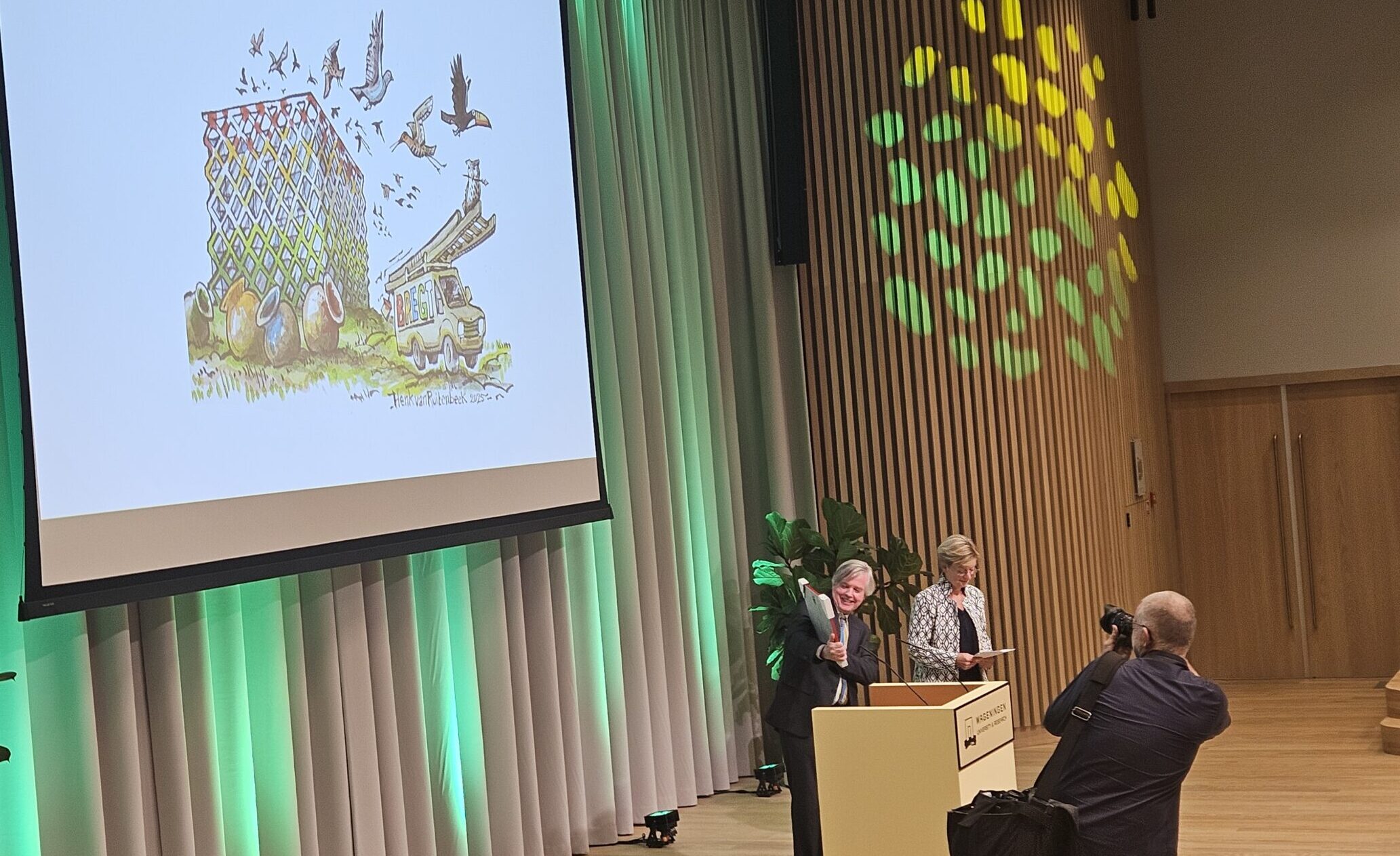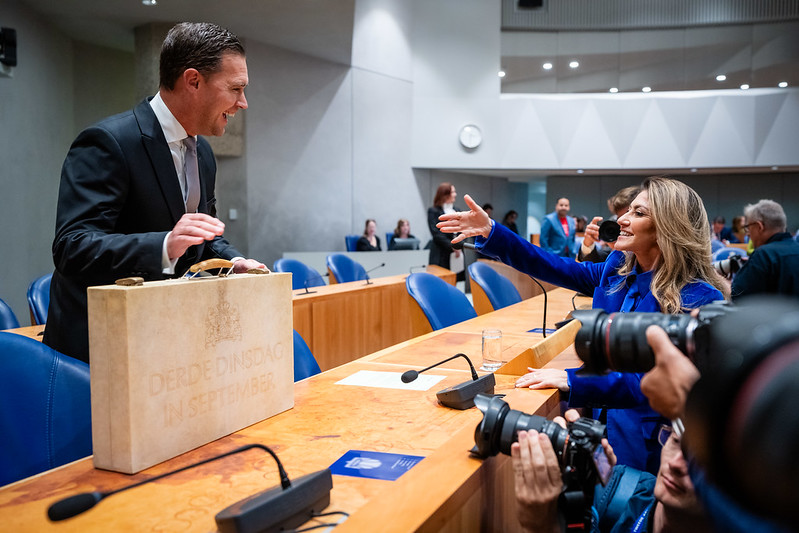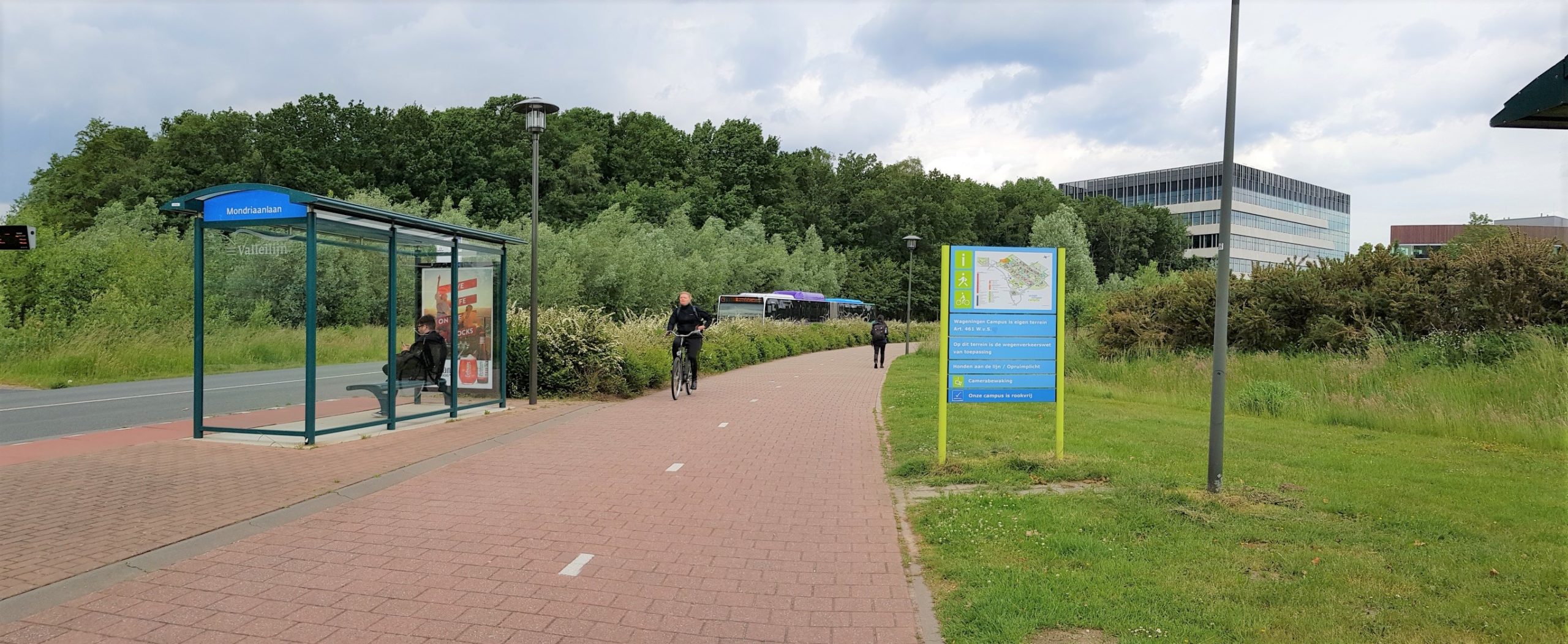The academic year is drawing to a close and it seems as though we’ll be saying goodbye to lockdown in September. Resource invited WUR President Louise Fresco, two WUR staff members and one student to discuss topics like blended working, education and WUR’s collaboration with the business world.
The conversation took place before the latest Covid press conference on 18 June.
May we introduce: Martine Lazzarin (ML), a researcher at Plant Sciences; Renee Rooijakkers (RR), a Master’s student of Food Technology; and Ruud Bink (RB), an advisor from the Ecological Monitoring Network. Between them they represent (albeit broadly) the WUR community. In the online roundtable session (which took place before the press conference of 18 June, ed.) the four spent nearly an hour in discussion, ducking no issues. And of course Resource (R) stuck its oar in now and then.
WUR is not going to lay down any rules about blended working
Louise Fresco (LF) ‘I’ve been impressed by the efforts and commitment of people at WUR over the past year. During the lockdown, nobody gives you a literal pat on the back to say “Well done”. I’ve seen how colleagues had to be self-motivating – teachers, students, researchers, the support staff. We’ve shown resilience. That resilience will stand us in good stead now as we move on. For blended working, for example, which means working partially from home. I’ve been hearing that a lot of colleagues see advantages to not always having to be in the office or on campus. What is more, blended working helps reduce CO2 because we travel less, and we save energy by not having to travel by car or train five days a week.’

RB ‘How are we going to make blended working work?’
LF ‘WUR is not going to lay down any rules for it. Because every team is unique. Just take lab work, for instance – you can’t do that from home. It’s important for us to create a flexible system. You can have online meetings alongside face-to-face ones and walks – managing by walking around. And we must also be aware of staff and students who can’t create a good workspace at home: WUR and its managers need to find appropriate options that work well for the individual as well as the group. There is not going to be a one-size-fits-all solution.’
We want to give students a real feeling of being at university again.’
RR ‘Is WUR ready for the students who will come back to the campus, and for blended working?’
LF ‘Yes, but a lot depends on the government as well. How many people can be in the workplace at the same time? Will the one-and-a-half-metres rule still apply? We don’t know yet. Hygiene measures are still important to us: hand-washing is effective. We shall have to grow into the new reality. And we bear in mind the chances of a new wave of the virus. Most of the buildings have enough space, certainly now we have the new building, Aurora, as well. But I’m curious to know what you all think of blended working?’
RB ‘Six months ago I’d have said, never! But I see it differently now. I can work faster at home than I thought, but it is tiring too because of the nonstop focus on a screen, and the constant switching of language and subject. I haven’t yet experienced what it’s like to work partly from home and partly on campus.’
ML ‘Blended working works well for me. When I have to do experiments, I come to the campus; if I need to concentrate, I work at home. One thing to pay attention to: many of my colleagues come from overseas, and from countries where there is still a lot of Covid. They haven’t seen their families for over a year, and that is tough on them. What I’m looking forward to myself now we are getting more freedom is the conferences, the symposia, the trips. That is food for the mind. Working online can never be a good substitute for that.’
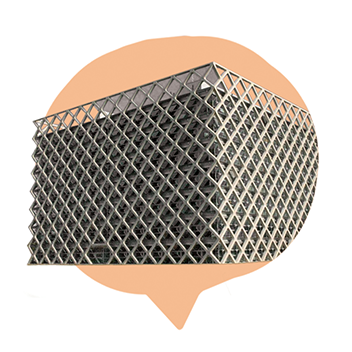
RR ‘And education, Louise? How do you see the future for education?’
LF ‘The main cause for concern for me is the students who started last year and have hardly any idea what student life is like. We must make sure they get up to speed in their degree programmes after the Covid year. Because “learning to study” is all part of their education. And we are going to devote time to the new first-years too. The student coordinators are already intensely involved with this. We are lucky that the new education building Aurora is ready in time. It is a spacious environment with high ceilings, which means people can meet up, even if there are still restrictions. We want to give students a real feeling of being at university again. I’m convinced that our coordinators, and our teachers of course, will find good and appropriate options for this group.’
Growth is not an end in itself for WUR
R ‘Registrations of prospective Bachelor’s students were 15 per cent down in mid-March. Informally, we gathered not everyone saw that as a problem. The number of registrations has caught up again now, but would it really be so bad if it was a bit lower?’
LF ‘Growth is not an end in itself for WUR. But we do have degree programmes here that are crucial for nature and health, so you want enough students taking those. A slow growth that is manageable. And that’s what we’ve been seeing. What we don’t want, for example, is everybody opting for a degree in AI (Artificial Intelligence, ed.) Of course, some degrees are more popular than others, but in generally there is a reasonable balance here. And that’s good because we want students from all kinds of disciplines to meet each other.’
RR ‘What lessons have we learned from online education? Will there be blended learning from now on, for example?’
LF ‘Our teachers have been very creative. I met one teacher who sent his students a minilab by post, and I heard about distance practicals being taught. We must see what works well. Whatever the case, you can’t graduate from WUR unless you have been on the campus for most of your studies. Because a degree here is also an academic training. We want to produce people who think about issues such as the environment, nutrition, and how we use nature. These are things you learn by being on the campus and together. Some of it can be blended. That cuts down travelling time for Dutch students and helps foreign students who are worried about travelling because of Covid-19. But a complete Wageningen Online degree is not something I think will happen.’
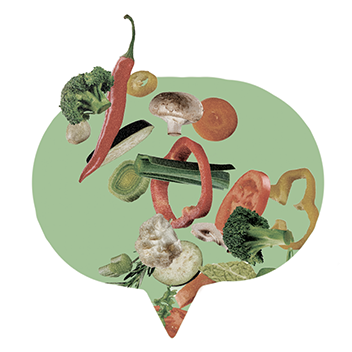
ML ‘You mentioned AI, and those students are good at programming. Here in Wageningen, everything is mixed so I see them working with students who have other skills. They learn to collaborate. Should that continue in research teams in future, that combination of skills?’
LF ‘You can’t generalize, but my experience is that the best teams are those in which disciplines complement each other. In which people learn from each other and share their unique perspectives. But if you don’t know anything about programming, then it’s difficult to join in the discussion on some topics. You do need a basic knowledge. Not everyone has to become an AI expert, but if you just know a little bit about it, that makes the conversation more fruitful.’
ML ‘In connection with that, I get the impression that the applied sciences are seen as less scientific than the fundamental sciences. That’s reflected in assessments by journals and ratings too. Is the one more scientific than the other?’
LF ‘Certainly not. A practical problem from the applied sciences can turn out to be a fantastic fundamental problem. And that works both ways, just look at CRISPR-Cas. That generates collaboration between Wageningen Research and the university. That cross-pollination is important, and I believe in it. But the evaluation of scientists – and staff in general – should be broader than it is if you base it entirely on publications and grants. Teaching should be valued, as should the impact of the research and the role of researchers in society. A researcher who goes into a secondary school and tells an inspiring story about a Wageningen topic can have a tremendous impact on young people. It’s impossible to compare that with a scientist who publishes a lot in a high-ranking journal. We must look at all the areas in which we have an impact.’
R ‘What does the future of WUR look like? What are the concerns? And what are you looking forward to?’
LF ‘We are evaluating our strategic plan, so it is too soon to say anything definite. Over the past few weeks we’ve been pondering the question: do our ideas have an impact? A lot of things are heading in the right direction. The collaboration within WUR on subjects such as circular agriculture or biodiversity, for example. I hope Resource will follow up on that one. And it’s not only about what we do. The world around us is changing. Covid-19 has shown us the power of science – how quickly scientists analysed the genome, and how quickly they came up with a vaccine – but distrust of science has grown too. The polarized reactions on social media are certainly something that affects us as well. And there is widespread concern about the future. Where are we headed with the planet? That will be an important aspect of the debate from September.’
Who do we need in order to have an impact? The government, citizens, and the private sector
RB ‘How can you prepare the WUR community for that?’
LF ‘It’s a time of challenges and opportunities. You can see that the outside world is asking a lot of questions, and that forces us to think about who we are and what we want. And we are doing that. There was an online debate on biodiversity recently. What are we going to contribute in that area, as a research institute? How do we use our knowledge, and what is controversial? So I’m pleased that we now have a dialogue programme and that the Dialogue Centre will open next year. It’s becoming more and more important that we keep up a (science-driven) dialogue with society. But there’s no need to be in constant discussion. That is not feasible and it’s not what everyone wants. For those who do want it, there is much to be gained in restoring confidence in the sciences.’

R ‘There is still a lot of discussion about collaboration between WUR and the private sector. Should we seek collaboration, or should we be aiming instead for more independence?’
LF ‘You should put the question differently: who do we need in order to have an impact? We need the government, citizens, and the private sector too. That raises the question of how we can collaborate with businesses. What do we need in order to do so, and how can we do so transparently? I think things are moving in the right direction, and everyone is learning from collaborating. Including the business world. The big sectors are investing increasingly responsibly. Why is that? Not just because they suddenly start feeling very responsible, but because the IMF and the banks say that industry must take more responsibility for the future.’
RR ‘Some people think that WUR withholds information in that respect. How can WUR be more transparent, and how can we do more than talk about it?’
LF ‘We are free to choose who we collaborate with, and who we work with is no secret. We share all our research data on our website. You can’t keep back information: to do so would damage trust in us as a research institute and in our scientific results as well. But you are right: the perception is the problem. We are going to tackle that, and we’ll stay in dialogue about the dilemmas. Input from our staff and students is essential for that.’

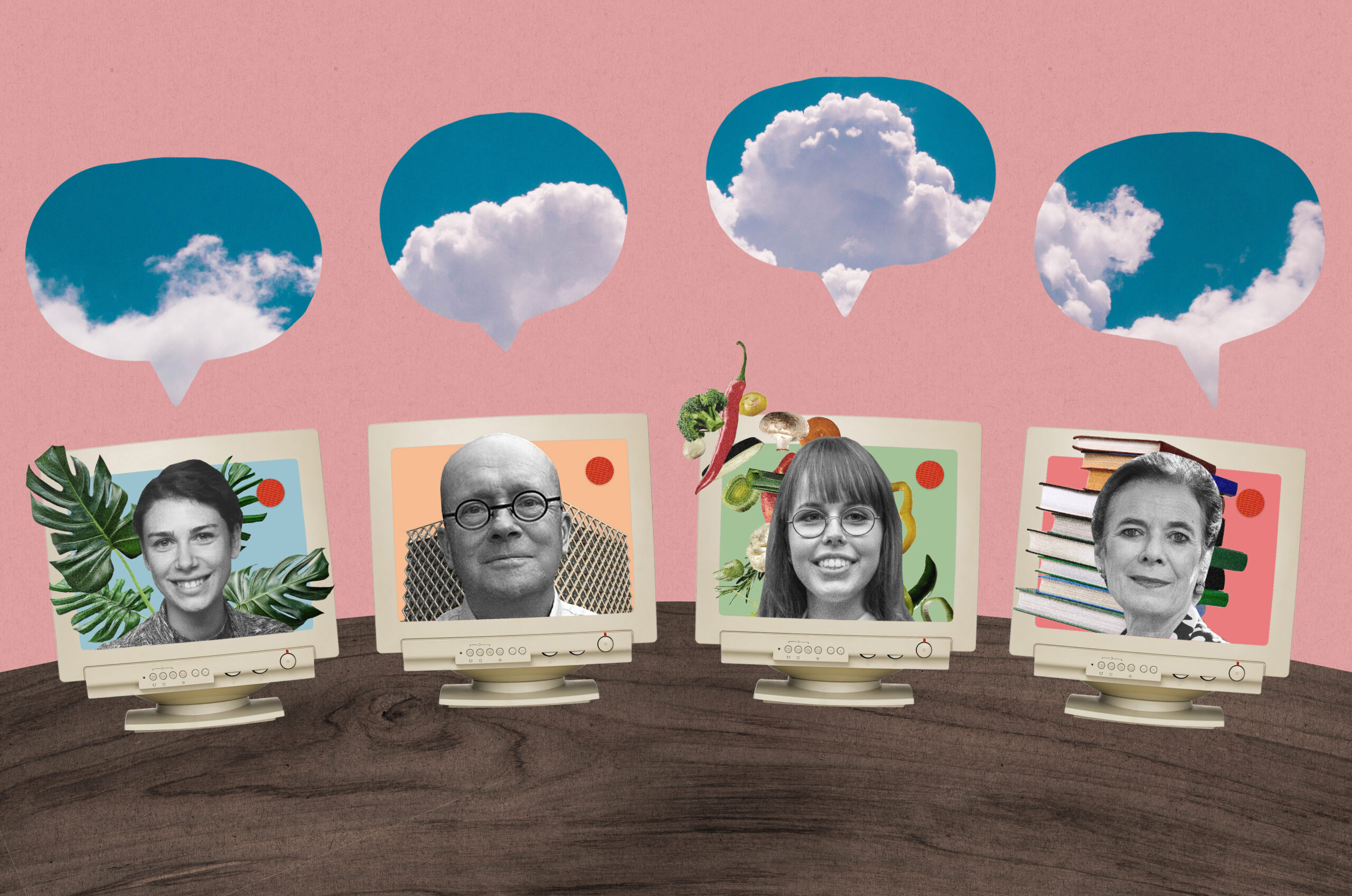 Martina Lazzarin (ML), Ruud Bink (RB), Renee Rooijakkers (RR) and Louise Fresco (LF). Illustration: Studio Geniek
Martina Lazzarin (ML), Ruud Bink (RB), Renee Rooijakkers (RR) and Louise Fresco (LF). Illustration: Studio Geniek 